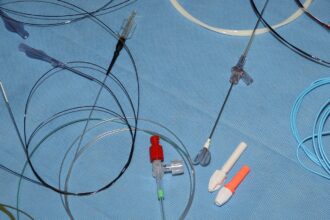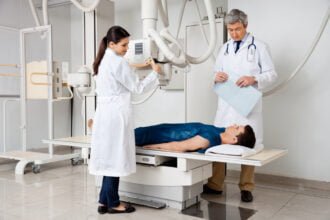If you are thinking about pursuing a medical career that does not require lengthy degrees and costly fees, a medical assistant (MA) may be a good fit.
According to the Bureau of Labor Statistics (BLS), MAs take home around $17.75 per hour, which translates to around $36,930 per year. Better still, the job growth for MAs in the United States is expected to expand by 18% between 2020 and 2030.
That means you can never go wrong if you choose a career as a medical assistant. But what does a medical assistant do on a day-to-day basis? Keep reading to learn more about the job of a medical assistant, including educational requirements and daily duties.
What Is A Medical Assistant?
An MA is a professional who helps physicians and other healthcare providers with different administrative and clinical chores. They often work in a health care center, doctor’s clinics, outpatient facilities, and mobile healthcare institutions.
What Does It Take to Become a Medical Assistant?
To start your career as a medical assistant, you need at least a high school diploma. However, acquiring professional training in medical assisting will be more beneficial as most employers prefer to hire candidates with certification, diploma, or associate degree.
Therefore, you must ensure the institution you want to join is accredited and recognized across the country. If you are not sure what to choose, this medical assistant program can help you prepare for your future career in the medical field.
Keep in mind that being competent, dependable, and trustworthy will give you an added edge in the eyes of potential employers.
What Do Medical Assistants Do On A Day To Day Basis?
Medical assistants often perform various administrative and clinical functions as part of their job responsibilities. While the job demands may vary from one healthcare institution to another, an average day for a medical assistant may entail performing the following duties:
1. Administrative Duties
The main job of a medical assistant is to make the work of a medical practitioner easier. In other words, an MA reviews the doctor’s calendar and adds more patients’ appointments if the physician has extra time.
A medical assistant will often use a computer to check the patient records, update them as appropriate, and review medical histories. As a result, their job may sometimes extend to reminding patients of their upcoming appointments via phone, text message, or email.
In some facilities, the MA may be responsible for handling medical billing, insurance issues, and maintaining records for new supplies, medical equipment, and office furniture and equipment.
2. Patient Support
Medical assistants sometimes perform patient support duties on top of booking patients’ appointments. These include welcoming patients to the health center, inquiring about their health problems and symptoms, analyzing their ailments, and comparing them with the patients’ medical histories.
In some instances, a medical assistant may assist the patient in getting to the examination room and preparing for the doctor’s examination. They will also need to interact with the patients’ family members to keep them updated.
Because of the frequent and direct encounters with patients, doctors, and other people, MAs must have excellent interpersonal and communication skills. The ability to chat with patients and discuss their treatment process may help reduce their fears and increase their confidence.
Additionally, having a caring personality and the ability to put patients and their families at ease will be beneficial when working as a medical assistant.
3. Taking Vital Signs
Taking vital signs may be another fundamental role of medical assistants. Simply put, a medical assistant will be, in some facilities, responsible for taking patients’ vital signs when they arrive at the doctor’s office. These include signs like blood pressure, respiratory rate, pulse rate, and body temperature.
As they gain experience, medical assistants may have the skills to take vital signs in a medical office lab. Doctors often rely on the highlighted vital signs when diagnosing or identifying the patient’s medical issues.
4. Drawing Blood
Doctors perform blood tests to look for disorders like diabetes or cancer or assess the functionality of a specific organ.
That means medical assistants may sometimes help the doctor perform simple procedures such as drawing and preparing blood samples for laboratory testing. MAs may also come in handy in helping the patients relax, especially when they are afraid of seeing blood or a needle.
Conclusion
Medical assistants will often work hand in hand with physicians and other medical professionals. Therefore, they must be able to follow the doctor’s directions to the letter to be successful in this role.
In addition, medical assistants must be well versed in medical code, clinical pharmacology and know how to comply with OSHA and other medical regulations.









